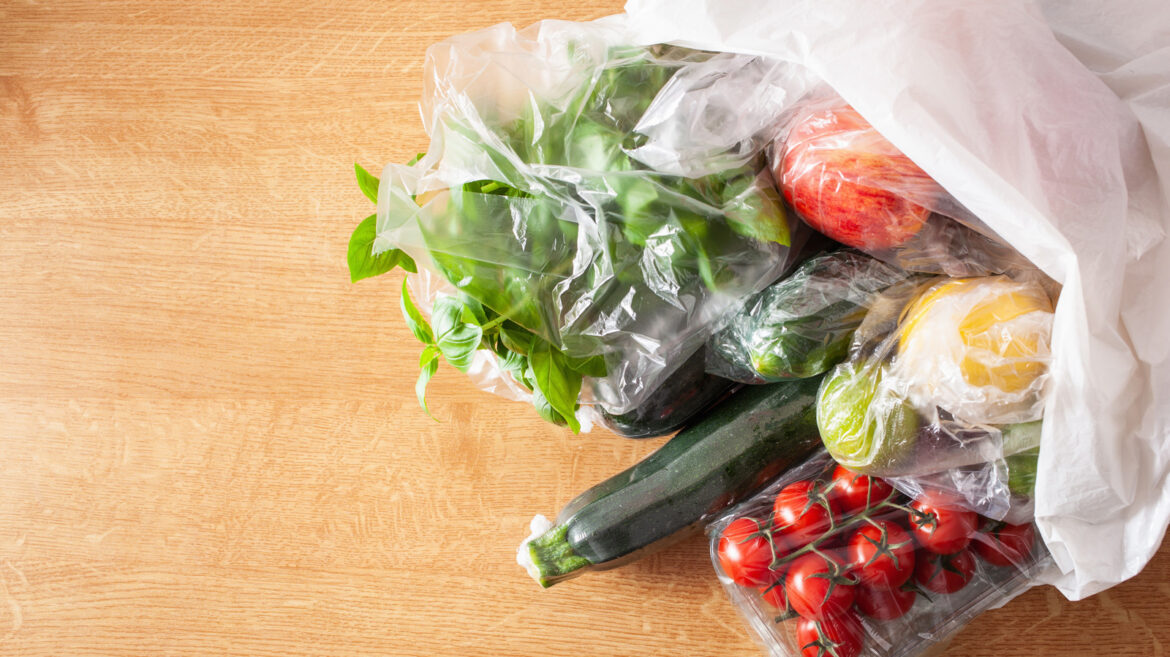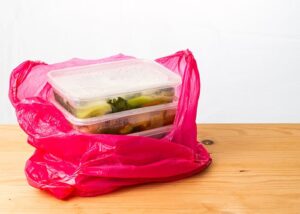Dubai became the latest emirate in the UAE to announce a ban on single-use plastic from January 1, 2024, imposing up to a maximum penalty of Dh2,000 fine for violations.
This comes in the wake of the announcement made by the federal government in January 2023 about the pan-UAE ban on single-use plastic from 2024.
The ban is aimed at protecting the environment from pollution, limiting the consumption of plastic and regulating its use at the federal level.
The government had announced a tariff of 25 fils or Dh0.25 on consumers using single-use plastic bags in order to encourage the use of more eco-friendly alternatives.
Most retailers in the country already levied this tariff on shoppers who opted to carry their goods in single-use plastic bags. Dubai implemented the tariff on July 1 and Sharjah introduced it on October 1, 2022. Umm Al Quwain and Ajman also banned single-use plastics from January 1, 2023, and Ras Al Khaimah from January 1, 2024.
In Abu Dhabi, a blanket ban on single-use plastic was enacted on June 1, 2022, while the ban on Styrofoam products also came into effect on January 1, 2024. This, according to the Environment Agency – Abu Dhabi, helped save 450,000 single-use plastic bags each day during the first year of the ban.
Here is all you need to know about the ban on single-use plastic bags by Dubai and the federal government.
UAE-wide rules
When does the ban on single-use plastic come into effect across the UAE?
Starting from January 1, 2024, there has been a blanket ban on single-use plastic bags.
What does the ban cover?
As per a ministerial resolution, it is prohibited to import, produce and circulate single-use plastic shopping bags from January 1, 2024.
When does the ban on products comes into effect?
Products made of single-use materials will be banned from January 1, 2026. This includes a ban on plastic or foam products like cups, plates, cutlery, containers and boxes. Spoons, forks, knives, chopsticks, straws and stirrers fall under this category as well.
What is exempted?
The UAE decision excludes some products, including thin bag rolls used to keep food items fresh. Products that are to be exported or re-exported are exempted, provided they are clearly labelled. Bags made out of recycled materials in the country are exempted as well.
Dubai rules
Here are the key features of the Dubai law on the single-use plastic bags ban and products made from such plastic:
Does the ban apply to disposable products also?
Yes. The ban applies to single-use disposable products and recycled ones, including both plastics and non-plastic items, regardless of their material composition.
Does the ban apply to packaging products also?
Yes. The ban is applicable on plastic and non-plastic single-use products, as well as food delivery packaging materials, fruit and vegetable wrapping, thick plastic bags, plastic containers, and packaging materials either partially or entirely made of plastic, such as those used for plastic bottles, snack bags, wet wipes, balloons, and balloon sticks.
What is the penalty for violations?
Violators will be subject to a fine of Dh200. If the same violation occurs within one year, the penalty will be doubled, with a maximum of Dh2,000 when doubled.
Can one contest the penalty?
Grievances must be submitted within ten working days from the date of notification regarding the decision, action, or administrative penalty.
Does Dubai law cover both mainland and free zones?
Yes. The ban extends to sellers and consumers within Dubai, covering private development zones and free zones, including the Dubai International Financial Centre.
Does Dubai law exclude anything?
The ban excludes rolls of thin bags used in packing meat, fish, vegetables, fruits, grains, bread, garbage bags, and products intended for export or re-export. These items include single-use plastic shopping bags, single-use shopping bags, and single-use disposable plastic products.
When will Dubai law cover single-use plastic products?
Starting from January 1, 2025, products like plastic stirrers, table covers, cups, styrofoam food containers, plastic straws, and plastic cotton swabs, will be prohibited. The ban will extend to plastic plates, plastic food containers, plastic tableware, and beverage cups and their plastic lids from January 1, 2026.



